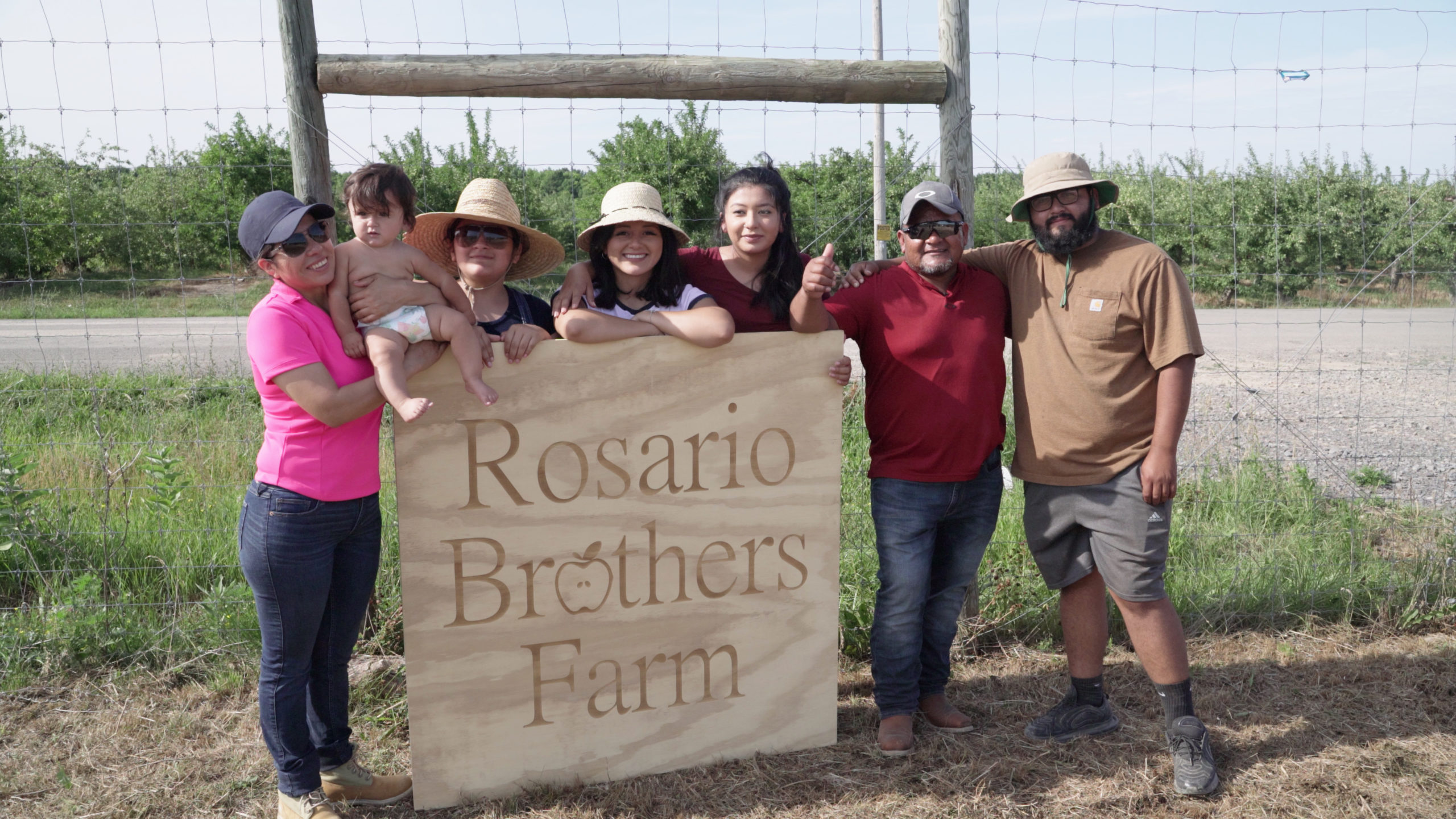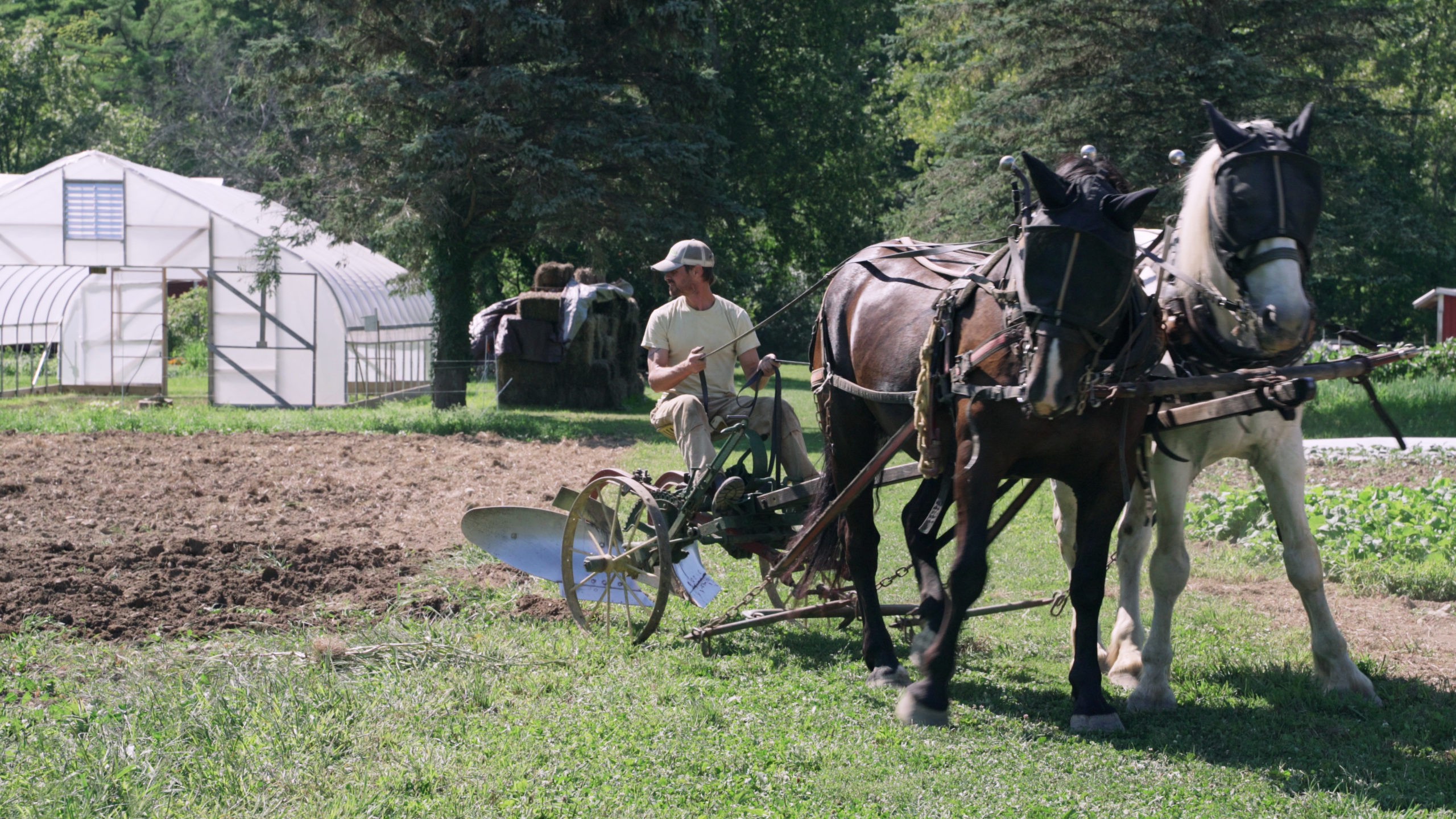What it Means to Join a Smart Farming Team
Two farms’ stories of building new skill sets while also building community.
The Smart Farming Team initiative has become one of the most impactful elements of the Labor Ready Project. Offering farm business owners the time and space necessary to address specific challenges facing their farm businesses, New York State producers worked in teams to build critical labor management, human resource, and financial management skill sets. While the project offered an individualized approach to problem solving, broad community impact has developed in tandem. Owing thanks to the dedicated Smart Farming Team producers and consultants alike, a budding network of skilled and successful farmers and businesses have been established in communities throughout the state. To demonstrate the power of community skill building, we highlight the stories of two Smart Farming Team producers.
The Rosario Smart Farming Team

Sergio and Silvia Rosario participated in the Master Class series, then applied for a Smart Farming Team grant, gaining access to a small team of Spanish-speaking agricultural consultants to further their financial skills sets in support of their farm business.
Jamie Johnson / Cornell Small Farms Program
Following many years of hard work as farm laborers on vegetable operations in the Southern U.S., Sergio and Silvia Rosario arrived in the Northeast as apple pickers for a Western New York orchard in 2008. Upon entering the orchard, something inside Sergio said, “this is what you want to do.” Every day since, Sergio has worked to realize his dream of owning and operating a family orchard business. Today, Serigo and Silvia are the proud owners of Rosario Brother’s Farms, a small orchard in Albion, New York.
However, their success faced a greater number of obstacles and challenges than most. Not only did the Rosario’s face the challenge of learning how to manage a business in the absence of formal training, but adding further complexity, they needed to acquire this knowledge while learning to speak and conduct business in a foreign language and culture. Eventually, Sergio and Silvia connected with the Cornell Small Farms Program to participate in the Master Class series. The couple gained an invaluable experience bolstering their managerial and English language skills alongside their Spanish-speaking farmer peers during the workshop. During the post-workshop evaluation, Sergio, along with a number of other Master Class participants, clearly stated their need and interest in furthering their financial skills sets.
From basic computer literacy to advanced enterprise budgeting, most Hispanic farmers lack access to trusted and reliable resources to close the educational gap necessary to promote farm business ownership within the community and diversify farm ownership in the state. Ultimately the Rosario’s, and five additional Hispanic farmers, chose to apply for a Smart Farming Team grant, gaining access to a small team of Spanish-speaking agricultural consultants. With the goal of establishing labor management and basic farm financial skill sets, each farmer participant of the Smart Farming Teams simultaneously added to the membership of a small, but mighty, growing network of Hispanic farmers. This project marked the first step in an important, yet overlooked, need for progress within the current agricultural service provider network. An expanded collaborative network of Spanish-speaking service providers and educators has enormous potential for impact in the broader Hispanic farming community.
The Featherbed Lane Smart Farming Team

Tim Biello enrolled in the Smart Farming Team project in order to ensure he could keep his successful business striving and healthy.
Jamie Johnson / Cornell Small Farms Program
Meanwhile, on the other side of the state, Tim Biello was embarking on search for land. A search that would span nearly a decade, before stepping foot on the Ballston Spa property that would become the future home of Featherbed Lane Farm. Tim’s approach, as owner and operator of Featherbed Lane Farm, is based on a keen sense of the balance that exists between the idealist’s dream and the realism of business acumen. Featherbed Lane is a vibrant and successful vegetable CSA that demonstrates the power of knowledge, when combined with the passion of heart. Tim relies on horse power alone to till the soil of Featherbed Lane, a testament to his drive and dedication, but more importantly an acknowledgement of his stewardship.
At Feather Bed Lane – every aspect and input are carefully considered. Farm animals and farm employees co-exist in the idyllic setting, skillfully growing fresh produce for customers and community members. However, the hard work involved in establishing a real-life dream is not to be overlooked. Employees at Featherbed are treated fairly thanks to Tim’s managerial approach, yet they are paid a living wage due to his financial management skill set. Hours upon hours have been spent managing the detailed financial aspects of the business. In order to ensure he could keep his successful business striving and healthy, Tim enrolled in the Smart Farming Team project. Tim’s work is a direct testament of the equal importance of a farmer’s business and labor management skills. Just as a restaurant could not serve food without a server and a chef, the successful farm business cannot run on technical skill alone.
With an attention to detail, the Featherbed Lane Smart Farming Team, increased overall business resilience through one of its most valuable assets – the skill set of the farmer to accurately manage the cost of labor.
You can hear more about these farmers’ experiences in videos on the Cornell Small Farms’ YouTube channel at youtube.com/cornellsmallfarms.

